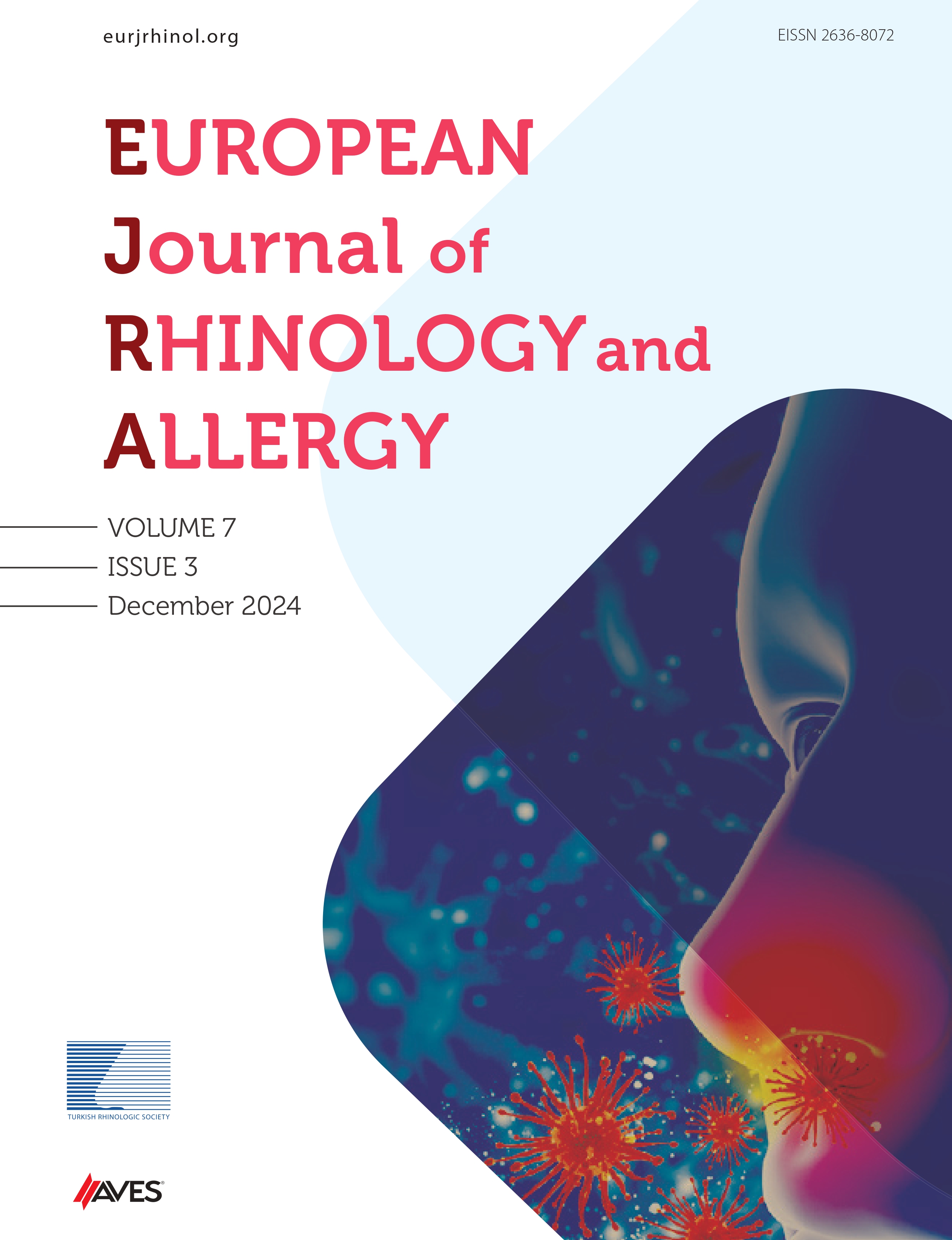Objective: This study aims to evaluate the dynamics of inflammatory markers (cytokines and acute-phase proteins), intraoperative bleeding intensity (BI), and postoperative pain severity (PS) in patients with chronic rhinosinusitis with nasal polyps in functional endoscopic sinus surgery (FESS) performed under general anesthesia and with the use of intravenous (IV) lidocaine or dexamethasone.
Methods: In this prospective, randomized, single-center, single-blinded cohort study, the clinical data and blood serum samples were collected from 52 patients after FESS, who were randomized into 3 groups: C (the control group, N=26), D (with 0.1-0.15 mg/kg dexamethasone, N=13), and L (with 1% IV lidocaine, N=13). We analyzed the levels of interleukin (IL)-6, IL-10, IL-18, α1-antitrypsin (A1AT), and ferritin.
Results: The C group showed an increase in IL-6 and IL-6/IL-10. The D group demonstrated rising levels of IL-10 and a decrease in IL-6 and IL-6/IL-10. Bleeding intensity was lower in the L (P < .001) and D groups (P < .05) than in the control group. All 3 groups demonstrated relative changes in the levels of the markers within the normal range.
Conclusion: Changes in cytokine profile were insignificant, which may be attributed to the minimally invasive surgery technique. Dexamethasone led to an increase in IL-10 levels, decreased postoperative concentrations of IL-6, IL-6/IL-10, and IL18 and slightly curbed bleeding. Intravenous lidocaine had a moderate effect on preventing the rise of IL-6 and IL-6/IL-10, and it effectively decreased BI and postoperative PS.
Cite this article as: Pavlov VE, Polushin YS, Karpischenko S. Changes in cytokine and acute-phase protein levels in functional endoscopic sinus surgery for chronic rhinosinusitis with nasal polyps: A randomized cohort study. Eur J Rhinol Allergy 2023;6(3):76-81.

.png)

.png)